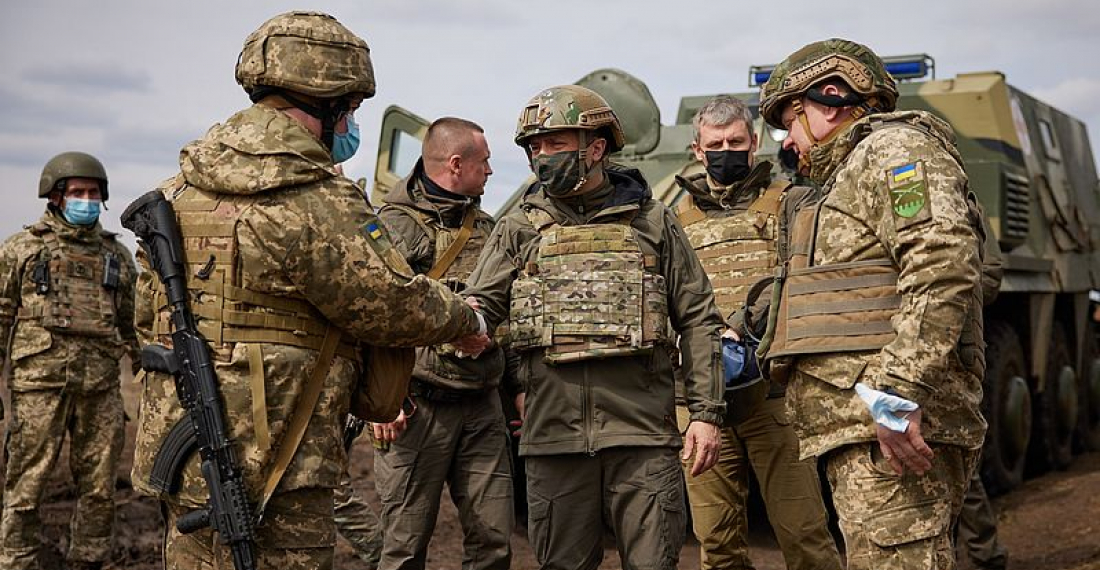On Thursday (15 April) the President of the European Council, Charles Michel held a telephone conversation with the President of Ukraine, Volodymyr Zelenskyy. The two discussed the tense situation in Eastern Ukraine.
President Michel expressed deep concern regarding the ongoing build-up of Russian military forces on Ukraine's border and in illegally-annexed Crimea, occupied by Russia in 2014. He considered such large-scale military movements as threatening and destabilising activities.
Since the annexation of Crimea, there have never been so many Russian military forces on the Ukrainian border as now. NATO Secretary-General Jens Stoltenberg has also expressed concern about the situation which threatens to escalate. Stoltenberg said that there is no justification for Russia to increase its military presence in and around Ukraine. He called it "inexplicable" and "extremely worrying". He urged Russia to stop doing so.
During Thursday's telephone conversation Charles Michel expressed the European Union's continued support for the independence, sovereignty and territorial integrity of Ukraine within its internationally recognised borders. The EU is united in its solidarity with Ukraine. Michel reiterated his call on Russia to respect the OSCE principles and commitments on transparency of military movements.
He also recalled the EU's full support to efforts in the Normandy Format and the Trilateral Contact Group and called for the full implementation of the Minsk Agreements as the way forward towards a lasting settlement.
Next Monday (19 April), the EU ministers of foreign affairs will discuss the issue of Ukraine amongst themselves. The ministers will also hold an informal exchange with the Ukrainian minister of foreign affairs, Dmytro Kuleba.
In addition to the EU, US President Biden has already expressed concerns about the situation in Eastern Ukraine and Crimea in a telephone conversation with his Russian counterpart, Vladimir Putin, on Tuesday (13 April).






